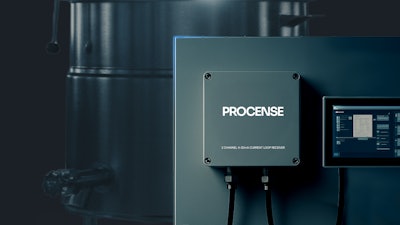
Over the past twenty years, virtually all facets of technology have advanced at breakneck speed—except in manufacturing, specifically chemical and personal care manufacturers. With high costs, installation challenges, and complex operations, this segment continues to rely on manufacturing technology that hasn't been cutting-edge for well over a decade.
The industry's current hardware and software solutions (including DCS, PLCs, SAP, Oracle and legacy ERPs), which are used to capture, analyze and operationalize critical production and quality data, are slow, expensive to update, and decentralized. Most of these solutions were never even designed for process manufacturers who produce recipe-based products in the first place.
As a result, key data collection remains an inefficient and hyper-manual process. Slowing down the workflow are old-fashioned tools such as paper forms, analog handheld instruments, manual data exports and analysis using general-purpose software like Microsoft Excel, VBA or a host of legacy systems.
Manufacturers relying on these outdated methods are prone to suffering impacts on their business that could otherwise be mitigated by upgrading to more modern manufacturing technology solutions. Some of the key challenges include:
- Lost time tracing the root cause of production issues
- Lack of compliance
- Expensive unplanned downtime
- Excess production waste
- Disconnected production and quality workflows
But it's the 21st century and there are solutions! Forward-looking manufacturers are integrating cloud-based, purpose-built applications into their workflow and looking to AI as a way to overcome each of these common problems. By automating root cause investigation, reducing downtime, increasing production efficiency, and producing more consistent, higher quality batches, manufacturers are ultimately maximizing their profitability.
However, most companies lack the experience to identify the right tech solution needed to overcome these challenges. And even if they could find the solution, they are faced with custom system implementations and ongoing engineering services that only deep-pocketed Fortune 500 companies can readily afford. But this is rapidly changing.
Today, new solution providers are bringing advanced technology to manufacturers that combine the power of digitized data collection, IoT production monitoring and AI analytics, but without the high costs and complex installation of previous solutions. When choosing the right solution, here are some of the questions manufacturers should first ask:
Does it centralize and automate data collection in real time?
Make it easy on operators, engineers, and QA to collect and use critical production and quality data in real time by insisting on plug-and-play data collection tools, such as tablet-based apps for digital forms.
Does it connect production to the cloud?
Enable teams to access real-time production visibility of production remotely while automatically collecting in-process production equipment such as pre-weigh, compounding, mixing tanks (temperature, pressure, flow, PH, weights, mixing speeds, etc.), and more during batch production with plug-and-play IoT devices.
How do we choose a smarter analytics platform?
Manufacturing workers used to rely on intuition and Excel to make decisions. But this method is slow, and that generation of workers is retiring. Equip the new workforce with new technologies that enable manufacturers to use AI and machine learning to analyze and gain insights from the most critical data in real-time.
Is it an industry-agnostic or verticalized platform?
Industry-agnostic tools used to be the norm. They are ERPs, MES, CMMS, etc., that can be customized for any industry. But they require customization, time, and technical expertise to fit specific processes and are usually better suited for large enterprises. Verticalized platforms cater to specific use cases and come with tailor-made solutions that fit different operations out of the box.
Do I choose a fully integrated (hardware + software) or pure software solution?
While most software is capable of integrating with SCADA, PLCs, or existing equipment, setting up and maintaining integration comes with its own set of challenges.
- Expensive custom integration work, ongoing maintenance complexity and risking compatibility issues if upgrades from both systems are not in sync
- Cross-managing multiple vendors
By choosing a vendor that provides both hardware and software, integration issues are eliminated, and manufacturers can more quickly go from proof of concept to production. It also allows manufacturers to take advantage of all of the new features and upgrades that are designed specifically for that vendor's solution.
How do I prepare for an AI-driven future?
To prepare for enabling AI and advanced analysis in the future, it is critical to collect the data that your process/manufacturing engineers require to optimize production and maximize quality. Until recently, it has been difficult to aggregate all data efficiently and at a speed that keeps up with operations. By centralizing this information into one system, it ensures that a foundation for success in the future is being built, while also making it easy for teams to easily leverage data today.
 Nirat Keswani is the co-founder and CEO of Procense.Procense
Nirat Keswani is the co-founder and CEO of Procense.Procense
Nirat Keswani is the co-founder and CEO of Procense, a San Francisco-based industrial automation startup developing cutting-edge AI and remote sensing technologies for process manufacturers.





















